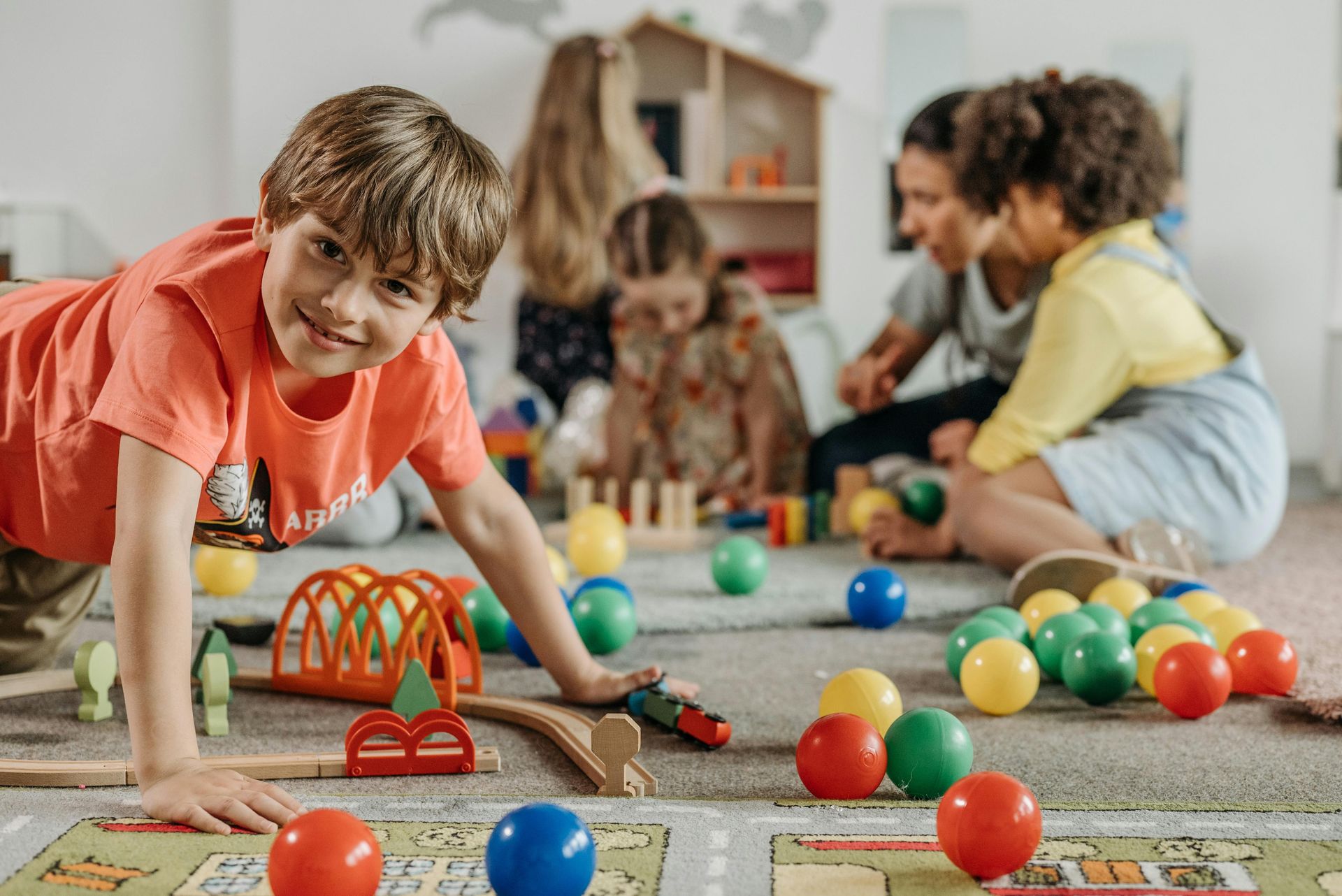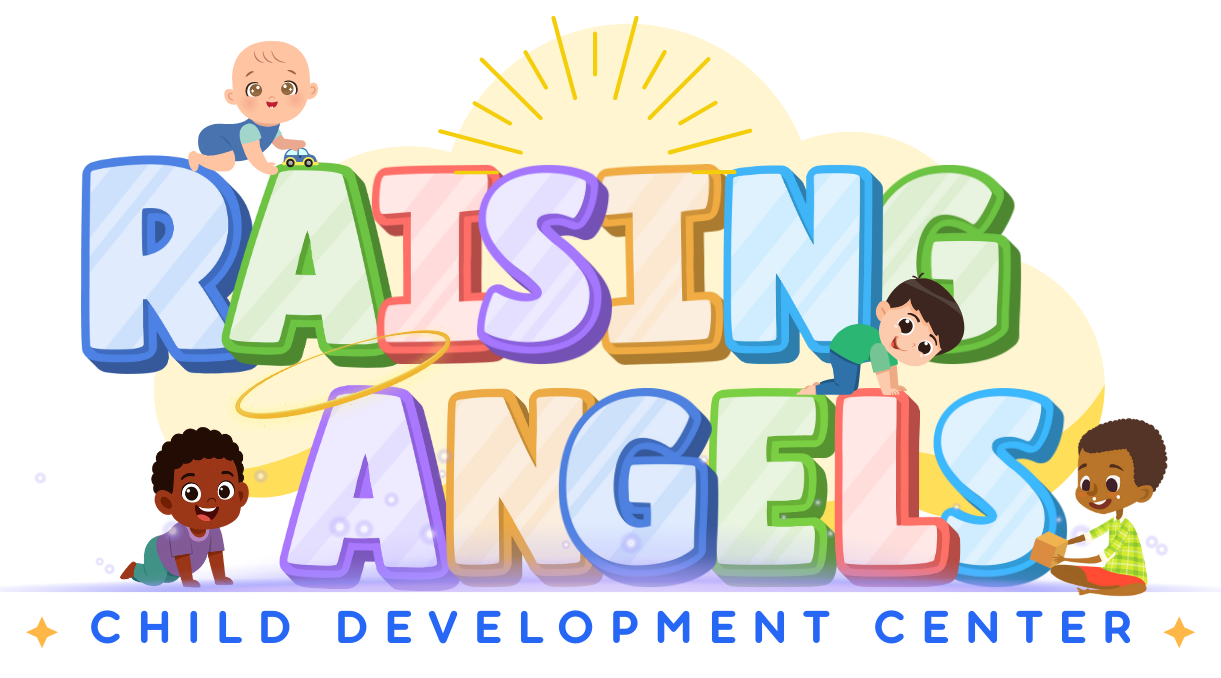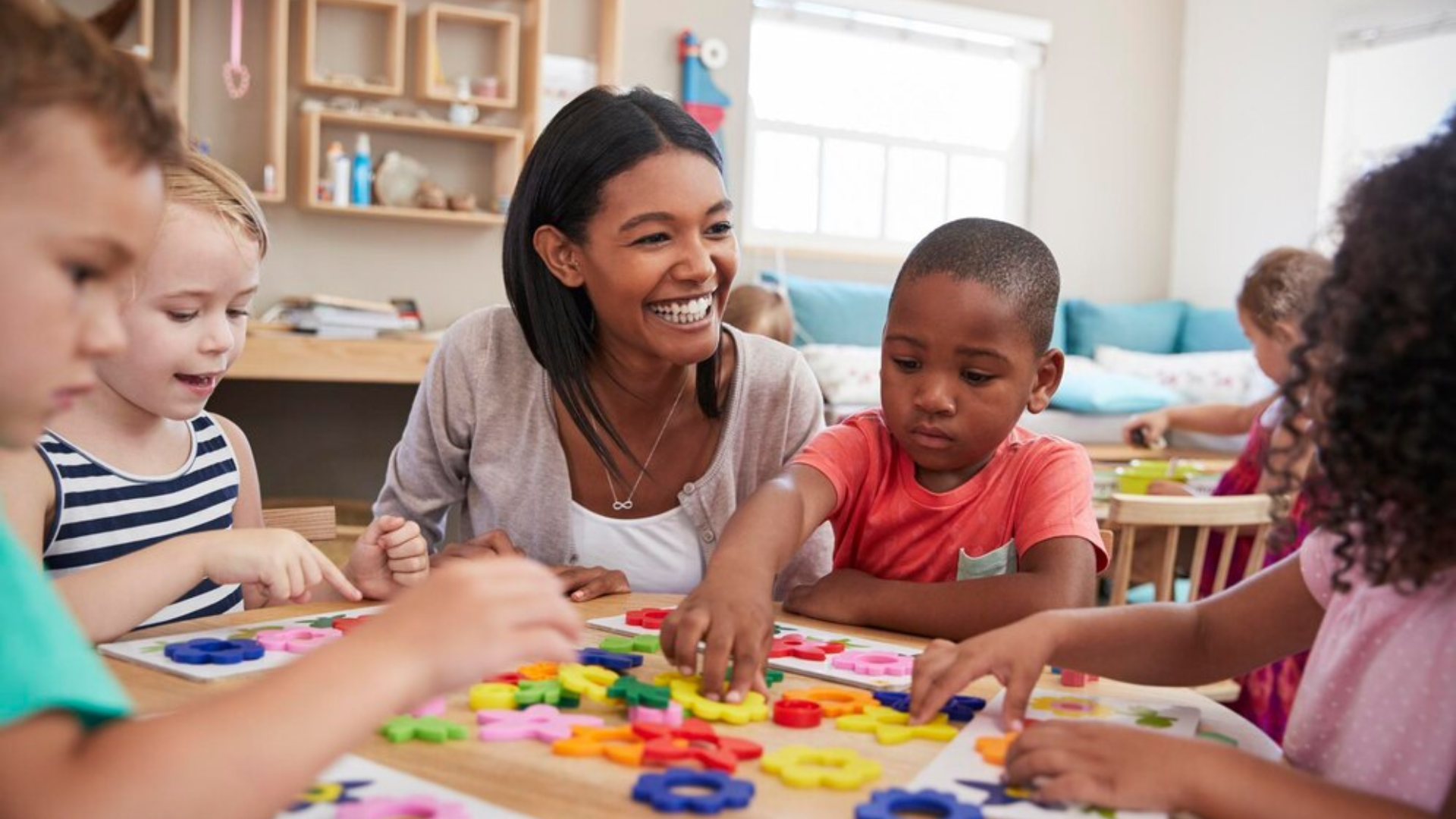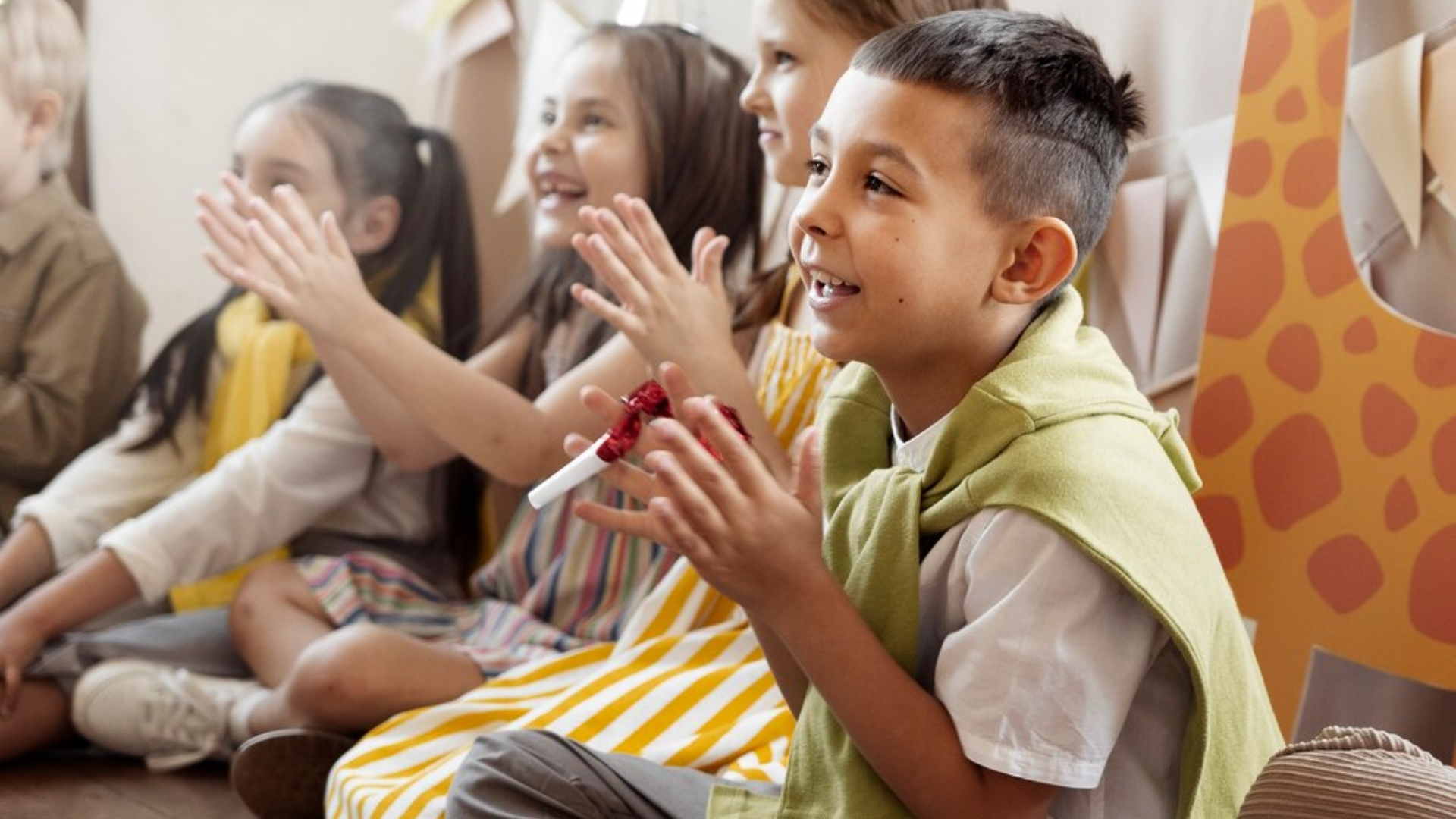
How Raising Angels Helps Orlando’s Young Learners Grow with Character and Kindness
At Raising Angels, we firmly believe that the foundation for a child's lifelong success is rooted in their character. We understand that the core qualities that define who a child becomes empathy, kindness, self regulation, and responsibility are developed during the early years of life. These years, especially in the vibrant, diverse city of Orlando, provide an incredible opportunity to shape a child's social and emotional development. The combination of the rich culture, community focused atmosphere, and exciting local environment makes Orlando an ideal place to instill the values that will guide children throughout their lives.
In our classroom, we do more than teach numbers and letters; we teach young learners to value kindness, respect, and empathy. Building character is just as essential as academic success, as it’s the key to forming strong, positive relationships and becoming engaged, compassionate members of society. In this blog post, we will explore how we at Raising Angels help Orlando’s littlest learners grow not only academically but also emotionally, socially, and ethically. Through structured lessons, spontaneous interactions, and purposeful activities, we instill in our children the values that make them both smart and kind.
1. Modeling Positive Behavior: The First Step Toward Character Development
Children, especially in their early years, are keen observers. They are constantly watching and learning from the adults around them. At Raising Angels, we embrace this understanding by ensuring that our staff embodies the behaviors we want to encourage in the children. We actively model kindness, patience, empathy, and respect in our interactions with children, families, and one another.
Actions Speak Louder Than Words
It's easy to say "be kind" or "share your toys," but what truly resonates with children is witnessing those words put into action. Whether it’s helping a child who is struggling with a task, offering a kind word of encouragement, or simply showing patience when a child is frustrated, our teachers actively show the behaviors that children can then imitate.
For instance, when a child is upset or unable to express their feelings, we guide them through calming techniques, model taking deep breaths, or engage in gentle conversations that teach emotional regulation. Over time, children not only learn the importance of staying calm and being kind, but they also internalize these strategies for use in their own interactions.
Our goal is to create an environment where respect is reciprocated. We show respect to the children, and in return, they learn to respect themselves and others. Positive reinforcement for small acts of kindness such as sharing or helping a friend reinforces these behaviors. The consistent modeling of respect and kindness is crucial to fostering an atmosphere of mutual care and understanding.
2. Empathy in Action: Teaching Children to Understand Others
Empathy is the cornerstone of building strong character, and we believe it should be taught actively from a very young age. At Raising Angels, we take great care to help children understand and connect with the emotions of others. In a diverse city like Orlando, where people come from many different backgrounds and experiences, it’s essential that children learn to appreciate the differences that make everyone unique and valuable.
Activities That Foster Empathy
- "Storytelling and Role Playing": One of the best ways we teach empathy is through stories. In our classroom, we often use books that focus on emotions, kindness, and friendship. These stories offer a chance to discuss the feelings of the characters and help children understand different perspectives. After reading, we encourage the children to role play situations that show empathy, such as comforting a friend who’s feeling sad or helping someone who is struggling. This hands on learning helps children internalize what empathy looks like in real life scenarios.
- "Buddy Systems": Pairing older and younger children together helps children develop empathy through mentoring relationships. Older children can model behaviors like patience, understanding, and gentle guidance, while younger children learn to trust and look up to their peers. The bonds formed in these buddy systems can be powerful, teaching children the importance of helping others and working together as a team.
- "Emotion Charts": At Raising Angels, we use tools like emotion charts that help children identify their feelings. We encourage children to express when they’re happy, sad, frustrated, or excited, and we discuss ways to respond to those emotions in a healthy way. By helping children put words to their feelings, we encourage them to think about how others might feel in similar situations, strengthening their ability to empathize with peers.
Through activities like these, we help children understand that everyone experiences a range of emotions and that it’s important to treat others with kindness and understanding, regardless of the situation.
3. Building Emotional Intelligence: Self Awareness and Regulation
While empathy is crucial for understanding others, developing emotional intelligence (EQ) is just as important. Emotional intelligence involves the ability to recognize, understand, and manage one’s own emotions. It also encompasses the ability to handle interpersonal relationships with empathy and care. Children who develop high EQ are more likely to be successful in school and in life, as they can navigate social situations and manage their emotions effectively.
Teaching Self Regulation
One of the ways we teach emotional intelligence is through self regulation techniques. Self regulation is the ability to control one’s emotions, thoughts, and behaviors in different situations. It’s a critical skill for young children, as it helps them stay calm when they feel overwhelmed and make thoughtful decisions when faced with challenges.
At Raising Angels, we create opportunities for children to practice self regulation through activities like:
- Mindfulness Moments: Children engage in short mindfulness activities, such as breathing exercises, yoga poses, or quiet moments of reflection. These techniques help children calm their minds, focus on the present moment, and manage any stress or anxiety they may experience.
- Peace Corners: In our classrooms, we have designated "peace corners" where children can go to calm down if they’re feeling upset or frustrated. Here, children can practice deep breathing, read a comforting book, or simply sit quietly and gather themselves. By creating a safe space for self regulation, we encourage children to take responsibility for their emotions and actions.
- Conflict Resolution Skills: Disagreements among children are a natural part of their development. At Raising Angels, we view these moments as opportunities to teach conflict resolution. Children learn to express their feelings calmly, listen to others’ viewpoints, and come up with solutions that benefit everyone. We guide children through this process by using simple phrases like, "What happened?" "How do you feel?" and "What can we do to fix this?"
Through these strategies, we are not only helping children regulate their emotions but also empowering them with the tools they need to interact with others in a compassionate, respectful manner.
4. Encouraging Positive Peer Interactions
The early years of childhood are crucial for developing healthy relationships with peers. We encourage children to build positive social skills through shared experiences, cooperative play, and team building activities. Positive peer relationships help children learn the importance of collaboration, problem solving, and compromise.
Learning Through Play
Play is one of the most powerful tools for social learning, and we make sure that playtime is filled with opportunities for children to practice kindness, communication, and cooperation. During both structured and free play activities, children are encouraged to work together, share resources, and help each other solve problems. Whether they’re building a fort with blocks, drawing together, or playing a game, they learn the importance of teamwork, listening, and sharing.
For example, we encourage children to take turns in group games, such as building a puzzle together or playing "Simon Says". These activities teach them how to cooperate, wait their turn, and communicate respectfully. We also create opportunities for group storytelling, where children work together to create a collective story, sharing ideas and adding their unique perspectives.
5. A Culture of Kindness: Everyday Rituals and Practices
At Raising Angels, we are intentional about creating a culture of kindness in everything we do. From morning greetings to the way we celebrate successes, kindness is at the heart of our daily routines.
"Kindness Journals"
We incorporate kindness journals into our curriculum, where children are encouraged to document acts of kindness they see in others or perform themselves. This practice not only helps children recognize kindness in the world around them but also reinforces the idea that small gestures of goodwill can have a big impact.
"Random Acts of Kindness" Challenges
Every month, we initiate Random Acts of Kindness challenges, where children are encouraged to perform small acts of kindness for their peers, teachers, or family members. This could be something as simple as sharing a toy, helping clean up, or giving a compliment. At the end of each month, we gather the children together to reflect on the kindness they have shared and received.
Praise and Recognition
We regularly praise children for showing kindness, whether it’s through verbal affirmation, stickers, or certificates. Recognizing these actions not only reinforces positive behavior but also boosts the children’s self esteem and encourages them to keep practicing kindness.
At Raising Angels, we believe that learning extends beyond the classroom, and that's why we enjoy exploring our favorite child-friendly parks and events around Orlando, where children can engage with nature, culture, and each other. These outings are an extension of how Orlando’s culture inspires our daily learning themes, enriching our curriculum and helping children connect with the community around them in meaningful ways.
Conclusion: Shaping the Future with Character and Kindness
At Raising Angels, we are dedicated to helping our young learners develop strong character and a compassionate spirit. Through modeling positive behavior, fostering empathy, teaching emotional intelligence, and encouraging positive peer relationships, we are laying the foundation for a kinder, more compassionate world. As we nurture the growth of our little angels, we are not only preparing them for academic success but also for a life filled with meaningful connections, empathy, and kindness.
In the heart of Orlando, where community and diversity thrive, Raising Angels takes great pride in contributing to the development of children who will grow up to be not only knowledgeable but also kind hearted, responsible, and caring individuals. As we continue to build a culture of character and kindness, we look forward to watching these young learners shine not just in their schoolwork, but in all the beautiful ways they will touch the lives of others in the future.











